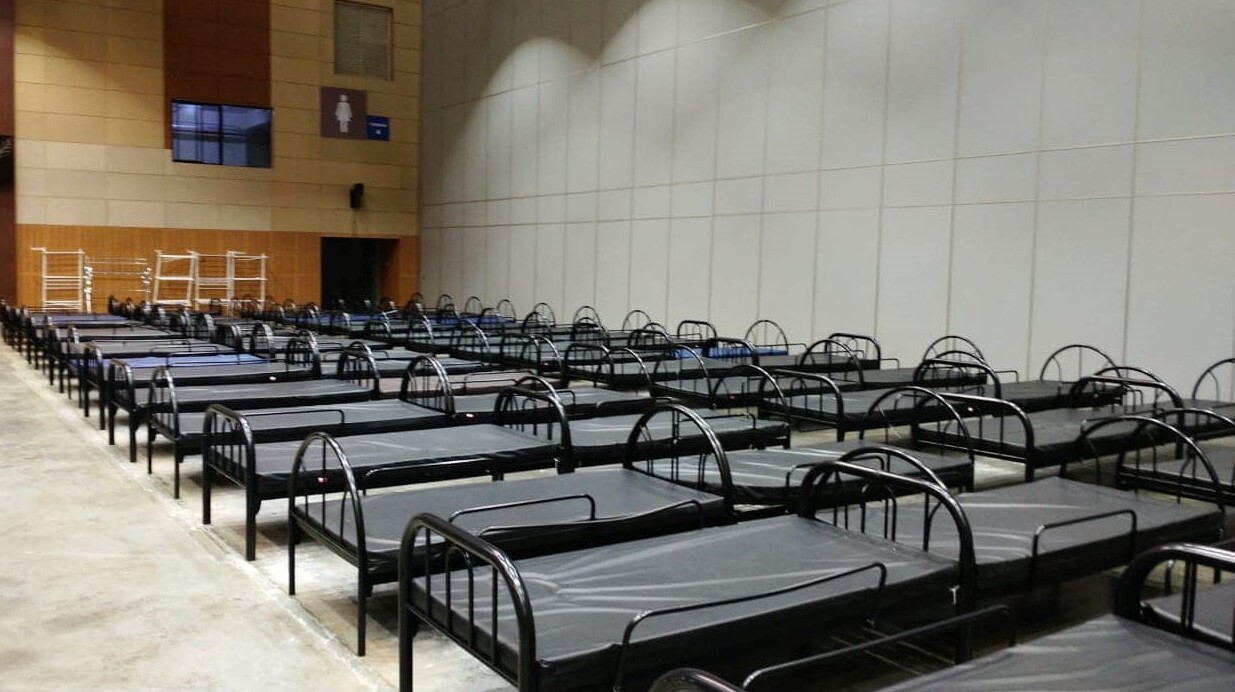KUALA LUMPUR, Feb 24 – The MAEPS centre in Selangor will be reopened tomorrow as a Covid-19 low-risk quarantine and treatment facility (PKRC) to allow continuity of care for non-Covid cases in hospitals, Khairy Jamaluddin said today.
The health minister explained that hospital beds in the Klang Valley currently suffice for Covid-19 cases, but that MAEPS needs to reopen to accommodate patients with asymptomatic, mild, and moderate Covid-19 in Stages One to Three to prevent disruption of care for elective cases that has been postponed for the past two years.
“This is to safeguard hospital capacity in the Klang Valley and so that non-Covid treatment can be continued without disruption,” Khairy told a press conference today.
He said admission to MAEPS is predominantly for low-risk Covid-19 cases and step-down care. Step-down care refers to intermediate care for patients who may not warrant intensive care unit (ICU) care, but are not stable enough for care in the general ward.
MAEPS, Khairy said, will reopen with 100 beds tomorrow, far lower than the 10,000 beds at the height of the Delta wave last year. There will be a buffer of 850 beds.
He pointed out that during the current wave of the Omicron variant, people are now getting admitted to hospital “with” Covid, rather than “for” Covid, as they seek treatment for other health issues but test positive for Covid-19 in hospital.
Because these patients test positive, they must be isolated from other patients, complicating hospital management.
“They’re sick not because of Covid. With Omicron, there are many cases like this,” Khairy said. “This is why we’re reopening MAEPS.”

Khairy reported a “decoupling effect” during the Omicron wave, where the surge in coronavirus infections is not accompanied by a similar spike in ICU admissions and fatalities.
“The number of admissions to ICU and deaths from Covid-19 is 80 to 90 per cent lower compared to reports in August last year, even though the number of cases at this time is higher.”
He noted that ICU admissions increased briefly in recent weeks, but pointed out also that hospital discharges have risen exponentially. ICU admissions are now on the decline.
“This shows that the majority of cases are not serious and their hospitalisation is much shorter than the Delta wave,” said Khairy.
The health minister attributed the lower rise in ICU admissions and Covid-19 fatalities, compared to the Delta wave last year, to vaccination.
Booster shots are particularly protective against severe disease for the elderly aged 70 years and older, said Khairy.
He showed graphs on much lower rates of Category Three to Five cases and Covid-19 deaths in these age groups on a per capita basis for boosted individuals, compared to the fully vaccinated and unvaccinated people.








